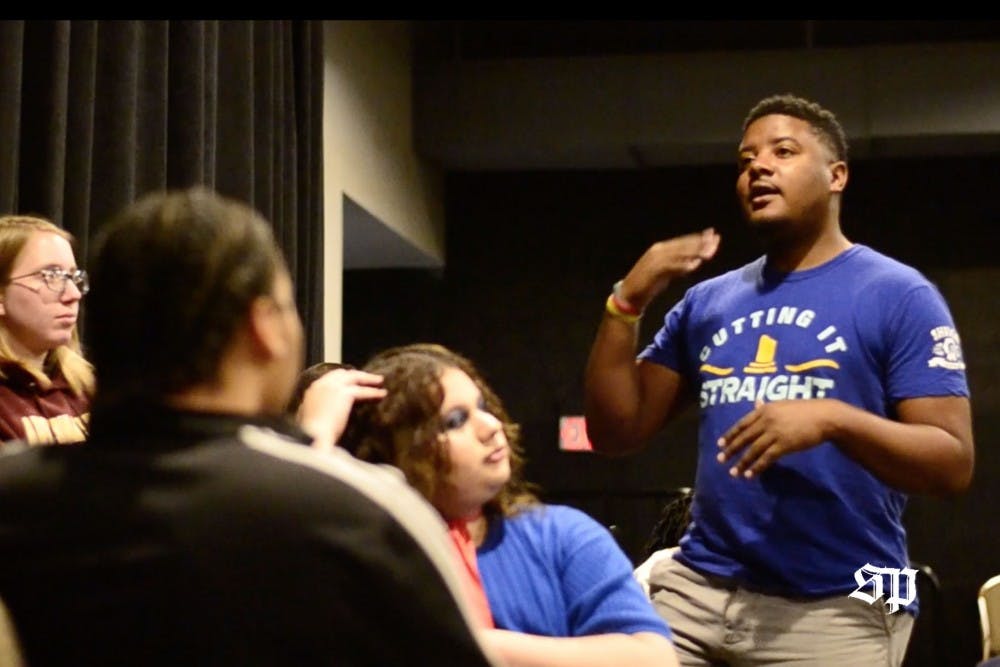While seeking his Ph.D., minister and theater student Donta McGilvery, aims to add diversity to the ASU theater program. After noticing a lack of diversity in the theater department, he created an African-American theater class. He engages with students by telling stories and teaching them African-American directors and playwrights.
Song: LAKEY INSPIRED - Chill Day (Vlog No Copyright Music) Music provided by Vlog No Copyright Music. Video Link: https://youtu.be/vtHGESuQ22s
Transcript:
[00:00:02] My name is Donta McGilvery, I'm a Ph.D. theater for youth student here at Arizona State University.
[00:00:12] I fell in love with stories at an early age. When we would often go to church, I started hearing stories of David and Goliath, about how Moses parted the Red Sea. When I heard these stories, I was really able to connect to the meaning behind these stories. When I got to middle school that was the first time I pursued drama. I fell in love with theater since that time.
[00:00:53] My childhood, my upbringing, gives me an eye that is keen on how people are treated, mistreated, misrepresented. So I carry those things on into my teaching philosophy.
I think there's a lack of representation of African-American playwrights, directors and actors. I started including the voices of those playwrights into the class discussion. I began integrating them. A lot of people didn't know about them, and I realized professors in the class and students never knew about any of these people or their contributions. It's a lack of African-Americans in theater altogether.
[00:01:53] In this class, because we deal with a play, but we just don't talk about what we see on stage or the script itself. We talk about the culture, what was happening at the time the play was written and what may have influenced the play writer's perspective. I like doing that because when you look at a play, you're looking at a body of work that entails not just the playwright himself or herself but more so you're looking at what influenced the playwright culturally. This person's background plays a part in it.
A play like "Sunday Morning in the South" had a tremendous impact on the students in this class, and it's primarily because it was most of their first time, I believe it was all of their first time, ever hearing about a genre called "anti-lynching," and it was primarily popular around the early nineteen hundreds. It's so impactful because it deals with the raw truth of how black lives didn't matter in America in 1916, but it also connects with, in many ways, with how black lives still don't matter in 2019.
This is still a heavily overlooked subject and primarily that's because it only affects people of color. This class has really spotted that. They are reading these plays and see, "Wow history was real" but history is a lot like the present. And I think that's the biggest awakening.
Reach the reporter at aaalva11@asu.edu or follow @abisai_alvarez on Twitter.
Like State Press on Facebook and follow @statepress on Twitter.




